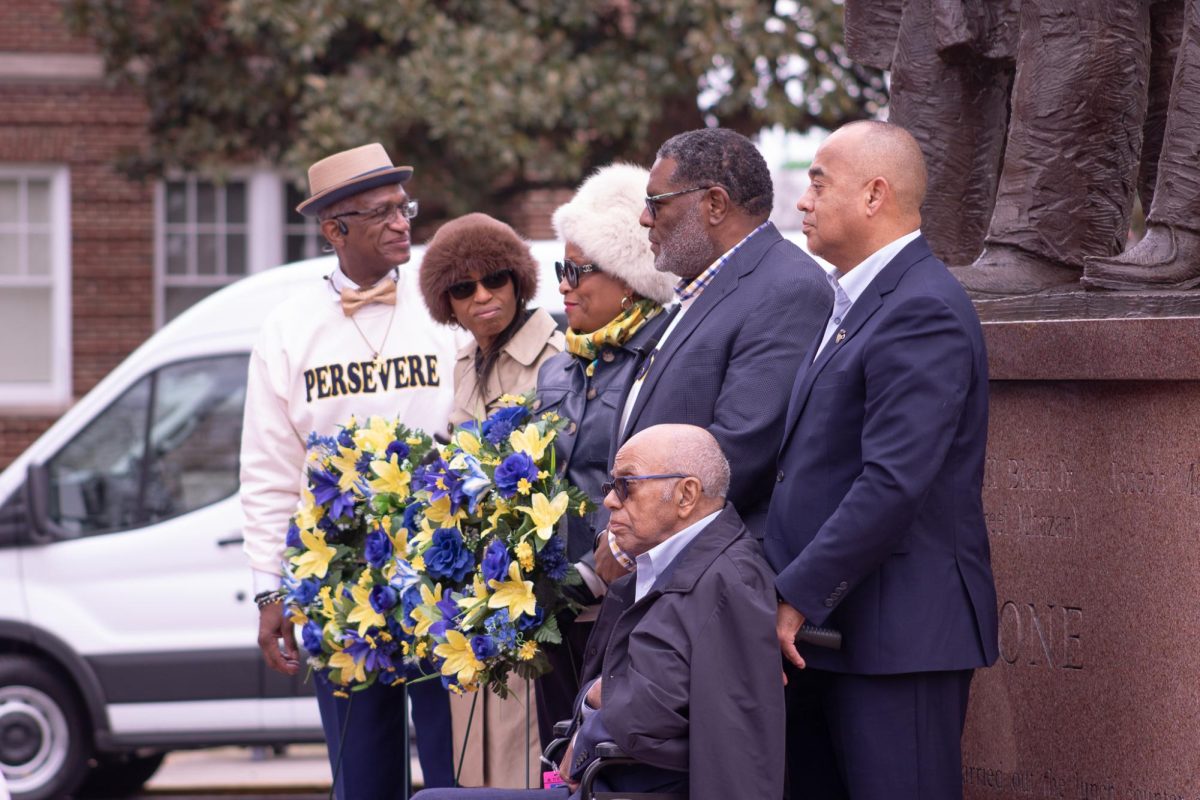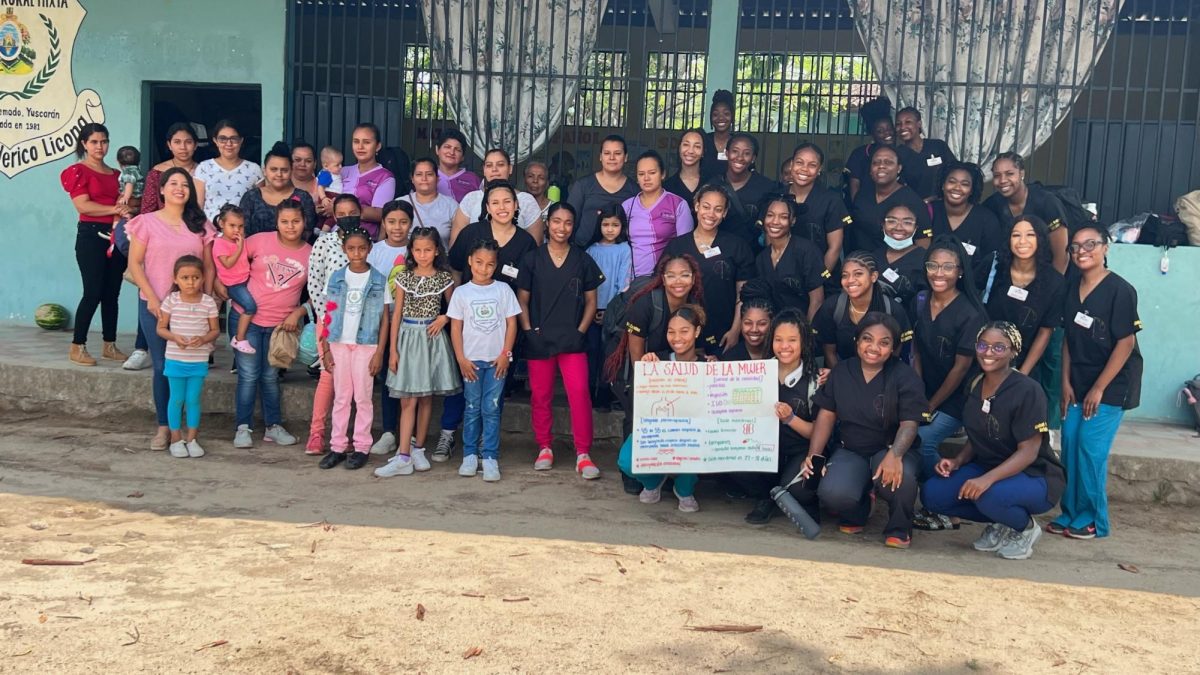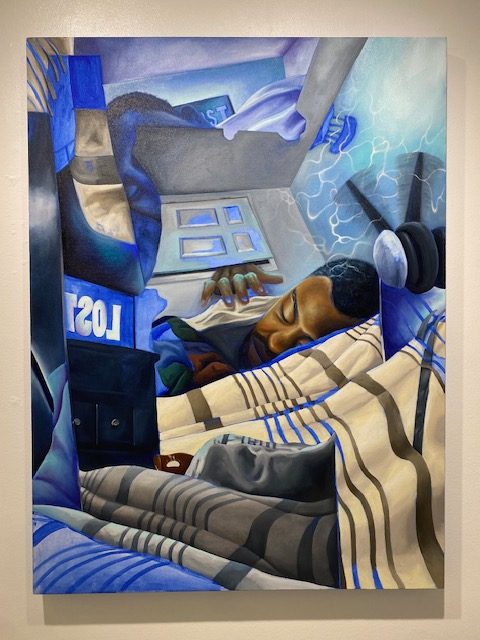Students, alumni and members of the Greensboro community gathered in the Alumni Foundation Center on Jan. 31 to commemorate the 65th sit-in anniversary of the A&T Four.
The theme, “Perseverance: the power of ageless evolution” highlights the legacy four men, Ezell Blair Jr.(now Jibreel Khazan), Joseph McNeil, Franklin McCain and David Richmond, left on Feb. 1, 1960 and the impact of sitting at a whites-only lunch counter left on generations forever.
The gospel choir opened the program with a medley of songs including “Ain’t no mountain high enough,” “My girl” and their rendition of “Lift every voice and sing.”
Kylie Rice, Student Government Association president and senior political science student welcomed the audience marking the importance of their bold stand for justice and equality.
“We will continue to honor the A&T four by preserving through adversity to the point of igniting new movements. As a student I can only imagine the raging fire that burned within them to see change. But I can also imagine the internal struggles that they endured,” Rice said.
Shelby Fogan, Bennett College’s Student Government Association president brought forth the occasion, while also recognizing both school’s students who fought for change.
In attendance were the four cohorts of February One scholars, who are following the way the A&T Four left behind. Jayden Seay, a member of the first cohort, is scheduled to graduate this May.
“A&T was my dream school and the only place I applied. I remember very distinctly reading an email about this new program and feeling like it was created just for me,” Seay said. “The Honors College [then program] looking at me and saying “You hold the same traits as these heroes” gave me a sense of purpose during my time here. As I prepare to graduate, I am excited to continue living the legacy and trying to be more like those four.”
Keynote speaker and retired congressman GK Butterfield enlightened guests by giving a history lesson through a timeline dating back 15 years before the sit-in and acknowledging the impact the A&T Four have left behind.
Butterfield detailed historical experiences of the NAACP focusing on voter’s rights in the 1940s, Brown vs Board of Education’s decision and the Montgomery bus boycott, and Eisenhower’s presidential election that energized and inspired the A&T Four to enact change.
“These four men did what you know so well. They got up that morning in Scott Hall and made their way to Woolworth and sat at that lunch counter and they changed the course of history,” Butterfield said. “It didn’t happen overnight, it took weeks and weeks of protest, not just by these four but by others from the campus as well. This movement of the Greensboro Four, not only changed the course of history in Greensboro, in North Carolina, but it reverberated all across the country.”
He highlighted the interconnectedness between the A&T Four and the Civil Rights movement that created an environment and energy in the Black community. He left guests with a challenge to struggle everyday.
“My challenge to you is that we must continue the struggle. It’s a struggle for equity. It’s a struggle for inclusion. Not just in the workplace but in higher education, public education because these institutions are under assault,” Butterfield said. “Let’s continue to struggle.”
After the speech, Chancellor James Martin II gave the Human Rights medal, awarded to recognize individuals who contribute to betterment of the world to N.C. Senator Gladys Robinson.
Robinson is currently serving her 8th term in the N.C. State house and has been a long-time advocate for civil rights and health. Robinson worked to open the first community health clinic and expand Medicaid.
The breakfast was closed by a laying of wreaths for deceased members of the A&T Four at their February 1 monument located by the Dudley Memorial building.













